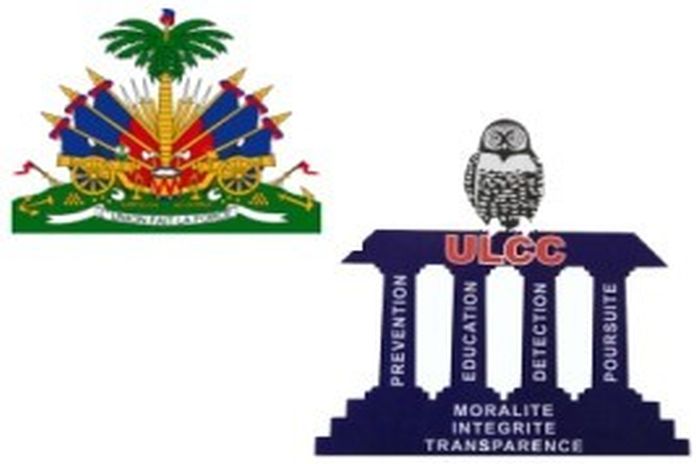– ULCC agents will, henceforth, fully act as judicial police officers
– New move could be turning point for fight against corruption in Haiti
By Joseph Guyler C. Delva
PORT-AU-PRINCE, Haiti, (HCNN) – Haiti’s anti-corruption unit has promised to further crack down on corrupt practices by fully enforcing the law that allows its agents to act as judicial police officers, with the powers to directly require the police to arrest and detain a suspect, following an interrogation by its sworn investigators.
A high-ranking officer at the Anti-Corruption Unit (better known by its French acronym ‘ULCC’) has told the Haitian-Caribbean News Network that his office is about to take action to further chase down those responsible for various acts of corruption in the impoverished Caribbean country of Haiti.
The official said anti-corruption agents at ULCC are sworn officers appointed by the director-general, and such agents have taken an oath before the Court’s Dean before being allowed to actually use legal powers assigned to judicial police officers.
“After taking the oath, and after receiving a written authorization from the ULCC director general, they become invested with the power to act in their capacity of judicial police officers,” the source, who claimed anonymity, told HCNN on Tuesday. “Our sworn judicial police officers are allowed to establish infringements, search for corruption crimes and bring their perpetrators before competent judges,” the official said.
Now, the status of judicial police officers, that the law confers on them, gives them the same power as any other judicial police officers, such as prosecutors, to some extent.
“Some people wonder whether anti-corruption agents may arrest and detain a suspect after the latter has been interrogated by ULCC officers: ‘The answer is yes’ “, the official stated. “After being heard by the ULCC, a person may be held if there is enough evidence linking the suspect to some serious and specific corruption crimes, and the ULCC may require the police to take into custody the suspect who will later be submitted to the authority of an investigating judge for further proceedings,” the official has told HCNN.
According to the law that created the ULCC in 2004, its agents, who have a right to carry weapons for their protection, may also issue wanted notices or carry out searches.
New approach seen as crucial turning point
A leading human rights activist, Antonal Mortimé, welcomes the move considered by the anti-corruption unit to get more involved in the enforcement aspect of the fight against corruption.
“We believe this is a very good approach. It is likely to help shake things up in order to try more cases and have more convictions, which will certainly deter new potential wrongdoers,” Mortimé told HCNN on Tuesday. “It is a very positive that ULCC agents will, from now on, act as Judicial Police Officers. This is really a big deal! The ULCC’s role is key in efforts to fight corruption which is one of the main sources for all of the country’s hardships,”, said Mortimé.
“With corruption being so entrenched in our society, more drastic measures and more in-depth investigations are needed. There should be specialized anti-corruption police agents, placed under the orders of the ULCC, who would be able to permanently help tackle corruption,” Mortimé insisted. The special police agents could make sure corrupt people and practices are being punished.
The human rights activist said, “suspects should be held immediately after their hearing, when there is strong indication of wrongdoing, to prevent spoliation of evidence and to prevent them from having time and posibility to corrupt witnesses.”
Mortimé said there should be an office of prosecutors that specialize in the fight against corruption and other financial crimes. Since its creation in 2004, ULCC has worked and produced 94 reports that have been transferred to judicial authorities for further proceedings.
Under the current ULCC leadership, more than half (49) of the corruption cases, ever investigated, have been treated over the past four years alone. On September 2, this year, seven investigation reports were submitted. But out of the 94 corruption cases investigated, there has been only one case that had been fully tried; and that was in 2015.
About 30 percent of Haiti’s national budget has been misappropriated and wasted yearly through the corruption plague, according to Haitian prime minister, Garry Conille.
ULCC works closely with the United Nations Office on Drugs and Crime (UNODC), which has a representative office in Haiti.
- Haitian-Caribbean News Network (HCNN)





